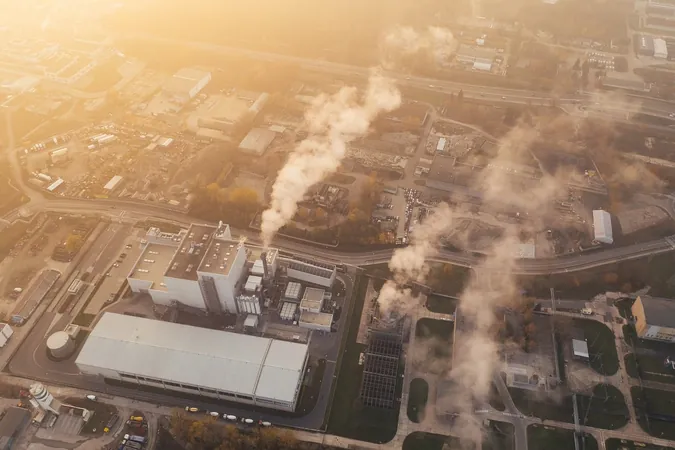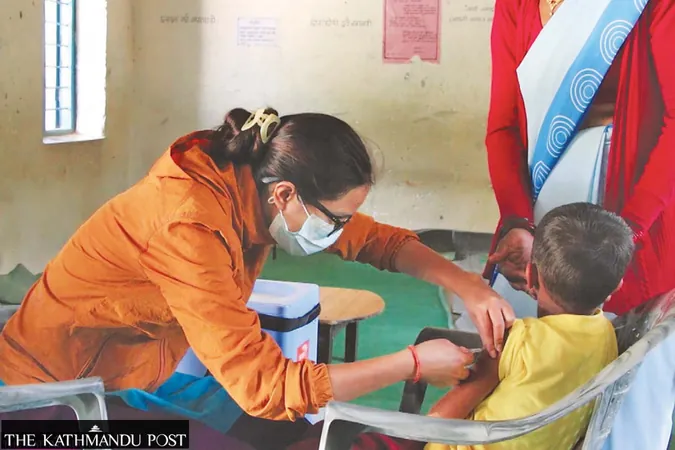
Revealed: Key Air Pollutants Fueling Asthma Hospitalizations
2025-08-29
Author: Mei
Boston Study Unveils Shocking Link Between Air Pollution and Asthma Rates
A groundbreaking study from the Harvard T.H. Chan School of Public Health has revealed that certain metals, specifically nickel and vanadium, alongside sulfate particles, play a significant role in increasing asthma hospitalizations. This alarming discovery highlights the complex nature of fine particulate air pollution (PM2.5) and its devastating impact on health.
Understanding the Culprits Behind Asthma Attacks
For years, researchers have recognized a correlation between PM2.5 and asthma attacks, but until now, the specific components contributing most to this risk remained unclear. According to Joel Schwartz, a professor of environmental epidemiology and one of the study's authors, the research aims to pinpoint which elements in the PM2.5 mixture necessitate immediate intervention to improve health outcomes for those suffering from asthma.
A Closer Look at the Data
The study, published on August 29, 2025, in the American Journal of Respiratory and Critical Care Medicine, utilized advanced machine learning algorithms to analyze the effects of various pollutants on asthma hospitalizations across 11 states from 2002 to 2016. Factors examined included pollutants like bromine, calcium, copper, and sulfate—each of which contributes to the dangerous PM2.5 mix. The findings indicated that each decile increase in air pollution corresponded to a 10.6% rise in asthma hospitalizations for children, and an 8% increase for adults aged 19 to 64.
Solutions Are Within Reach!
The imperative to manage these pollutants is clearer than ever. Schwartz emphasizes that controlling sources of nickel and vanadium—primarily generated from burning fuel oils—and sulfates from coal combustion can significantly reduce asthma-related hospital visits. Experts recommend implementing scrubbers in coal plants and moving towards cleaner fuel alternatives.
Next Steps in Research
While this study marks a significant advancement, the researchers stress the need for further investigation to assess how short-term exposure to these pollutants additionally impacts asthma hospitalizations, underscoring the continuing challenge that air pollution poses to public health.
Funding Concerns Hinge on Future Research
This vital research is now at risk due to potential cuts in government funding, threatening ongoing studies aimed at safeguarding our health from environmental hazards. The findings underscore the necessity for continued support in scientific inquiry to foster a healthier future.





 Brasil (PT)
Brasil (PT)
 Canada (EN)
Canada (EN)
 Chile (ES)
Chile (ES)
 Česko (CS)
Česko (CS)
 대한민국 (KO)
대한민국 (KO)
 España (ES)
España (ES)
 France (FR)
France (FR)
 Hong Kong (EN)
Hong Kong (EN)
 Italia (IT)
Italia (IT)
 日本 (JA)
日本 (JA)
 Magyarország (HU)
Magyarország (HU)
 Norge (NO)
Norge (NO)
 Polska (PL)
Polska (PL)
 Schweiz (DE)
Schweiz (DE)
 Singapore (EN)
Singapore (EN)
 Sverige (SV)
Sverige (SV)
 Suomi (FI)
Suomi (FI)
 Türkiye (TR)
Türkiye (TR)
 الإمارات العربية المتحدة (AR)
الإمارات العربية المتحدة (AR)